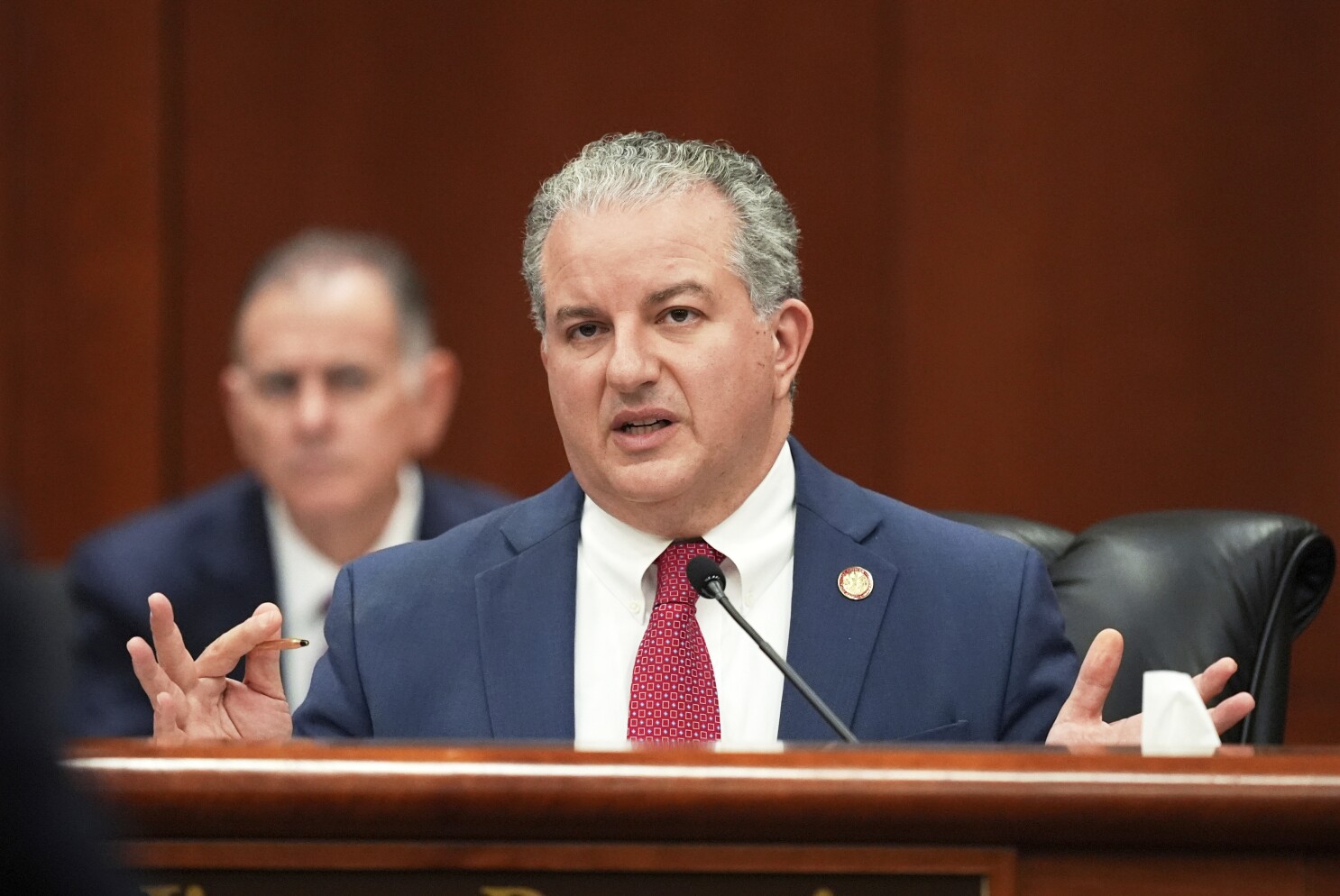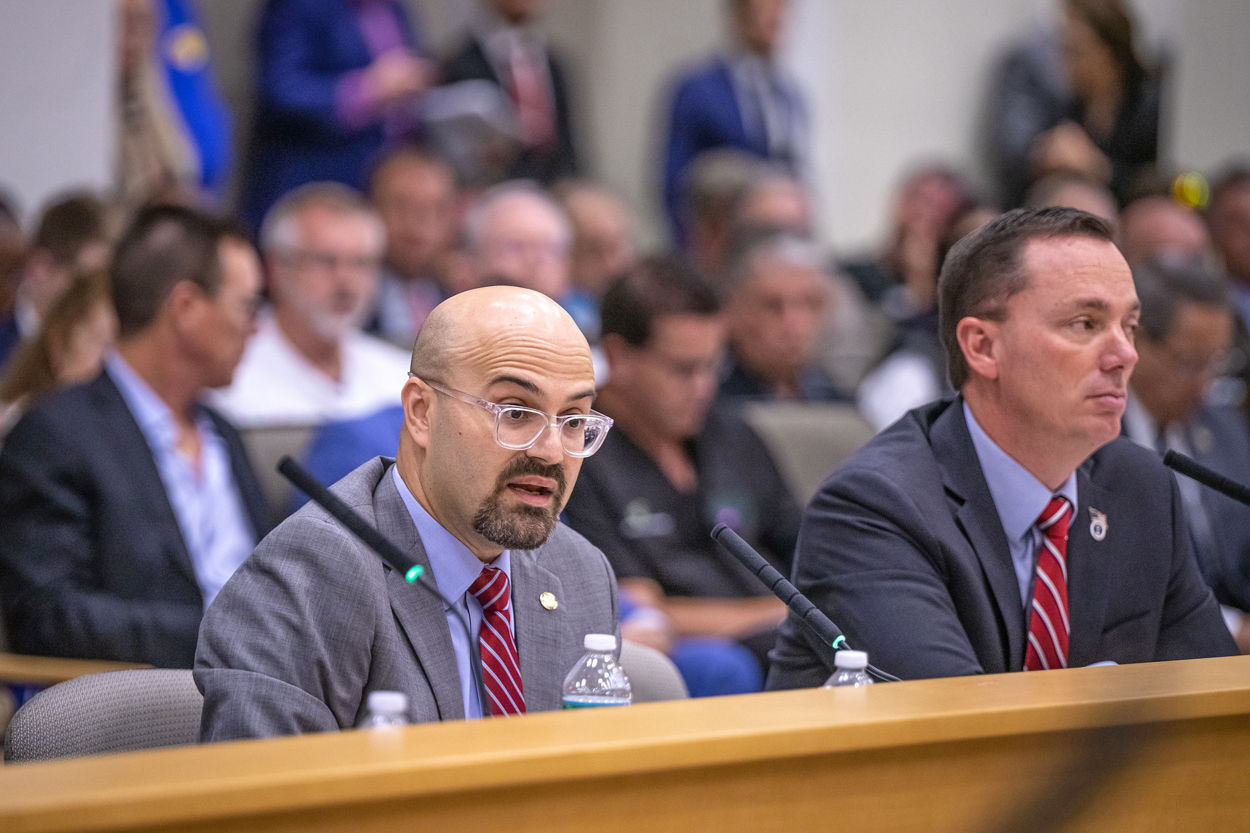Two bills meant to give property owners a clear route to compensation for damage done to their homes by blast mining are likely to die without a single hearing in either chamber of the Legislature.
The measures (SB 486, HB 303) are the most recent attempts by Hialeah Gardens Sen. Bryan Ávila and Miami Lakes Rep. Tom Fabricio to address years of complaints from residents, especially in Miami-Dade County, that nearby limestone quarry activities are hurting their homes.
But with the House ending most of its subcommittee meetings, there is little expectation that the companion proposals will advance this Session.
If passed, the bills would have guaranteed homeowners the ability to seek payment through a complaint filed with the Division of Administrative Hearings for damage caused by limestone mining.
The bills would also have provided that this state-level proceeding would preempt local claims processes.
There is a difference between the two similar proposals. Ávila’s three-page bill established the general setup for property owners to seek recompense. Fabricio’s five-page bill did that too, but also included standards of proof, limited claims to properties within three miles of a blasting site and provided that the Legislature could appropriate funds yearly to ensure payments.
For years, residents have complained that limestone blast mining damages their homes, and Fabricio made the issue a top campaign priority when he ran for office in 2020.
Lawmakers have worked to address the problem. In 2019, Republican Education Commissioner Manny Díaz Jr. and Republican Sen. Ana Maria Rodriguez, then a Senator and Representative, respectively, passed legislation requiring the State Fire Marshal to set ground vibration limits and mandate that mines use seismographs to monitor explosions and ensure compliance. The following year, Ávila, Díaz and Democratic Sen. Shevrin Jones successfully sponsored another measure giving the Fire Marshal exclusive authority to regulate and adopt construction mining standards. The bill also established the Miami-Dade Mining Pilot Program to monitor and report each blast and require the Division of State Fire Marshal to hire a seismologist to oversee the program.
Today, a roughly one-page section of Florida Statutes covers the governing laws for blast mining statewide.
But Ávila and Fabricio maintain that more needs to be done. Last year, they again filed bills to reduce the strength of allowable mining explosions. Neither bill was heard.
House lawmakers also heard testimony from residents and experts on the issue. Industry professionals maintained that while quarry explosions may cause cosmetic damage to nearby buildings, including small cracks in drywall and other relatively weak materials, they are not strong enough to cause structural damage at the currently allowed levels.
Residents and members of a Miami-Dade advisory board tasked with analyzing the problem disputed that assertion, arguing that any damage, including photographed cracks in the concrete, floors, and roofs of their homes, is unacceptable.
Fabricio said at the time that his goal was to strike a compromise that would enable mining companies to continue excavating vital construction and road materials, while also delivering a peaceful and fair arrangement to his constituents.
“Our view is pretty simple. We believe that the limestone quarry blasting limits in the state are generally fine,” he said. “However, in situations where we are about 1,000 yards from a residential community, where the homes are shaking every day and causing damage to the homes, it’s a problem.”
Limestone from rock quarries is used in virtually every construction project in Florida, which consumes more than 130 million tons of the material each year, according to Ananth Prasad, President of the Florida Builders Association.
More than a third of that supply comes from Miami-Dade, some of whose county and city governments have formed advisory committees to examine and make recommendations on how to improve matters.
According to Fabricio’s office, six mining companies operating at eight quarries in northwest Miami-Dade detonate tons of explosive materials every week to dislodge rocks referred to as “aggregate” from underground.
Since 1996, White Rock Quarries, the largest mining company operating in Miami-Dade County, has made more than $480,000 in in-state donations to Florida lawmakers. Ávila is among its biggest beneficiaries, receiving $37,500 from the company between 2014 and 2024.
In total, nearly half of Florida’s 40 sitting Senators and a fifth of its Representatives have accepted contributions from the company.
Post Views: 0

 Entertainment8 years ago
Entertainment8 years ago
 Politics8 years ago
Politics8 years ago
 Entertainment8 years ago
Entertainment8 years ago
 Entertainment8 years ago
Entertainment8 years ago
 Tech8 years ago
Tech8 years ago
 Tech8 years ago
Tech8 years ago
 Tech8 years ago
Tech8 years ago
 Politics8 years ago
Politics8 years ago









